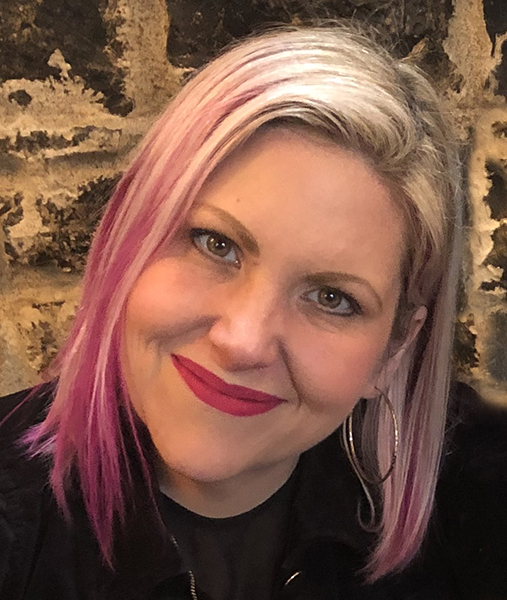About me

My career path starting at a very early age, I found that I was able to perceive and intuit things about those around me. These insights often provided me with a window into the deeper core level material with which a particular individual might be grappling. In the very beginning, all I could do was to observe, and to know.
That innate ability to tune into others, to feel what they feel, to understand the nature of life patterns, could be a double-edged sword at times. On the one hand, people would turn to me for advice, insight and support. However, on the other hand, if I was not careful I could become flooded by other people’s emotions and be temporarily distracted from my own self.
At first I struggled to understand and express what I sensed and perceived; to know what was mine versus what was someone else’s. I later learned there was a name for what I was - an intutive empath. Following naturally, the next realisation came that I am an HSP, or Highly Sensitive Person.
While I have come to accept, integrate, and value these gifts as I have grown into an adult and a professional therapist, the road early on was not always easy.
As a sensitive being in the world I could be prone to emotional overwhelm. I struggled with emotional dysregulation, and harmful self-soothing to calm my overstimulated nervous system. As a highy compassionate and empathic being I had to learn boundaries and how to set energetic limits to avoid becoming saturated by other peoples’ energies. This journey taught me to understand the unique experiences of many of my clients.
In addition, I learned to reclaim my own special magic and stand in my own truth as a highly intuitive being. Once I was able to fully embrace this, my path became clearer. Part of this path is to assist others to understand and integrate their own unique traits, so they can live more fulfilled and balanced lives, both on an emotional and physical level.
I have been volunteering since age eighteen. Once my natural inclination became crystal clear, it was followed by formal study and training. Some of my areas of decades of experience include hands-on work with:
- a very diverse client base
- issues proceeding from childhood and family
- substance-using populations
- eating disorders
- compassionate care for those living with cancer
- crisis intervention
- sexual and violent abuse
- complementary / alternative / holistic modalities
- bodywork (professional massage)
- HIV + AIDS populations
- those nearing the end of life
- LGBTQ+
I have worked with
- Children
- Families
- Individuals
- Couples
As a UK transplant I also welcome individuals who are new to the Bay Area from other parts of the world.
Looking back, I believe that my life journey has coalesced into a path devoted to facilitating others integrating their own gifts to obtain a connection with their authentic selves.
How I Work

My career began working with women with severe mental health challenges. I worked with women living with bipolar disorder and schizophrenia. This work gave me a good foundation in the complexities of mental health challenges and how they affect communities, individuals, and families.
I came to realise that many of these women had co-occuring issues such as substance misuse. This led to me becoming trained as a drug and alcohol counselor, an area in which I worked for the next eight years.
It is my belief that substance abuse affects most people either directly or indirectly. Working witihin a harm-reduction philosophy, I was able to train and practice a holistic and multi-layered approach to care. This includes devising a care plan, advocacy, outreach, and delivery of complimentary treatments such as auricular acupuncture.
Offering both Western and Eastern approaches to treatment has given me a great understanding of the need for holistic, individualized approaches to treatment for people struggling with drug and alcohol use.
Seeing this powerful link between psyche and body, I decided to embark upon my Masters in Somatic Psychology. I graduated wih my MA in Somatic Psychotherapy from John F. Kennedy University in 2016.
During my program I practiced several somatic modalities such as Hakomi, Sensory Motor, and Somatic Experiencing. I was also able to learn how to use modalities such as guided imagery, breath work, mindfulness, meditation, and healing touch to access the body’s unique wisdom and self-healing capabilities.
As a trained body worker since 2002 I have a good grasp of how the body can somaticize psychological trauma, wounding, and emotional imbalance.
As part of this I am particularly interested in continuing my experience working with those dealing with chronic illnesses, such as migraines, M.S, and depression.
I have journeyed with people living with a cancer diagosis. I have worked as a complimentary care volunteer with Hospice by the Bay, offering healing massage to people nearing the end of life. I have also worked with Charlotte Maxwell Complimentary Care Clinic for five years by providing massage and reiki to women living with various stages of cancer.
Engaging in therapy with individuals living with a chronic or life-threatening illness is a collaborative process. My compassion and sensitivity lend themselves well to gently encouraging individuals to take charge of their own healing and journey towards wholeness. I provide a non-judgmental safe space for individuals where they can feel emotionally held and able to express their fear, pain, and despair. Often people can feel judged, lableled, and shamed simply for having an illness. Part of my role is to help the individual feel empowered and learn self-compassion, knowing they are more than their diagnosis.
I work somatically, which means I invite the body into the therapy room, often asking questions like, “Where do you feel that in your body?” Or, “If your body could speak to you what might it say?” Or, “If you take a deep breath and go inside what do you sense?” My work is trauma-informed, which means I have a good foundational understanding of trauma and how it can impact the mind, body, and spirit.
I have training in several modalities that are based in energy psychology. These modalities are rooted in other types of traditions (such as shamanism) and approaches to mental health and well-being. Where appropriate, I can weave these into the therapeutic process.
I am a trained Theta Healer and Dynamic Energy Healer.
What To Expect

What might a typical session be like?
A therapy session is usually 50 minutes in length. It takes place in a setting that is much like a living room. We could sit opposite one another, maybe on the floor sometimes, if that is what makes you feel more comfortable.
People attending therapy are known as clients. Some people may have heard the term patient, but that word has its origins in the medical community which sees its patients as ill, and therefore instead I favor the term 'client'.
Usually I begin by asking what brought you to therapy, what you’d like to work on, what your goals are, if you have any fears and/or questions about the process, and remaining open to anything else you feel you can share.
If we both feel like we can work together, and it is a good fit, then we will enter into a therapeutic contract. Some paperwork will be involved such as a confidentiality statement, a fee agreement, a session-cancellation policy, and an outline of both yours and my responsiblities.
As the sessions progress it may involve expressing your feelings, thoughts, ideas, fears, hopes dreams, dissapointments, and expectations while I actively listen and empathise within a non-judgmental environment that I hope feels supportive and safe.
If you so decide, I might offer interventions, or homework, or techniques and tools that you could choose to use in between therapy sessions in your everyday life
Sometimes clients feel a need to express something that is difficult to put into words. Therefore they choose to express it in a non-verbal manner. I hold space for, and welcome, expression through artwork, writing, movement, role play, and miniature sandbox play therapy. Sometimes individuals might ask for specific activities such as a grounding meditation, a guided imagery, breathwork, or other modalities.
The most important thing to remember is that I am there to listen, and listening in and of itself can be a powerful offering that can assist someone in understanding themselves and their inner world more clearly.
Most importantly, all of the above methods and practices are merely options on a menu for the client to choose, or not choose. The client is always in the driver’s seat of the therapy session and the goal is to proceed safely. I am there as a facilitator, a guide, and a collaborative partner as you embark upon your own uniquely-tailored therapy journey.
E M D R

The Emdria website writes “EMDR is a structured therapy that encourages the patient to focus briefly on the trauma memory while simultaneously experiencing bilateral stimulation (typically eye movements), which is associated with a reduction in the vividness and emotion associated with the trauma memories.”
EMDR has been proven effective in the reduction of symptoms linked to PTSD, anxiety, depression, addictions and OCD.
The idea is that through dual attention EMDR is a way to toggle between having one foot in the past and one foot focused in the present, by doing so the hope is to reduce present time triggers that are associated with the past event (s), the goal is to alleviate what is causing blocks and issues in current everyday life, based on traumatic experiences/memories. Once difficult memories are reprocessed people can be freer to live their lives with fewer triggers and symptoms.
To find out more about EMDR: About EMDR Therapy
My EMDR profile: Trudy McMahon at EMDRIA
Relational Somatic Healing

What is Relational Somatic Healing
It is part relational in that it takes place between two people, me the therapist and you the client. That means we are in what is known as the relational field.
It is somatic in that it is about the body and it is healing in that attachment and bonding are hopefully taking place on many levels.
The use of touch in a safe therapeutic relationship can be very beneficial in terms of helping clients heal developmental wounding and attachment wounds while learning how to co-regulate their nervous systems more effectively.
This can help with stress, anxiety and depression.
My mentor writes "the type of touch offered on the table where the client is fully clothed is firm but gentle, steady and embodied, helping undo aloneness, helping one cultivate a deep sense of being held in one's pain, fear, grief and contraction. Such touch has no agenda or expectations. It is simply listening, accepting, welcoming and being present."
-Shirley Dvir (2023).
Some of the holds I might offer when you are on the table include: the heart hold where I place my hand under your upper back, or the kidney hold, where I place my hand on your lower back near your kidney, or on your shoulder or your knee for example. However, no hold is ever performed without your say-so. In this regard you are always in the driver's seat.
You will get the choice to have a cozy blanket over you too, if you wish. We might only do a few minutes of touch, or spend more time doing touch, in a session. It can be mixed in with talk therapy. The choice is yours. Equally, you may never want to try it and that's totally fine too.
The important thing is we go at your pace, only when you are ready to transition to table work is when we will go there.
You will also sign a separate consent form to do touch work.
Consent is very important and we can spend as much time talking about this piece as you want.
At no point will the touch be sexual in nature and at no point will you or I be undressed.
For more information see the website: Relational Somatic Healing
Ketamine-Assisted Therapy
Please be sure to read the disclaimer. 
What qualifies you to do this work? A Psychedelic-Assisted Therapy program
More I have completed a Psychedelic Assisted Therapy training certification program with Sage Institute in 2024.
In addition, I have an extensive history working in harm reduction within community organizations .
This involved providing services that integrated modalities such as: auricular acupuncture, needle exchange, and other forms of complimentary and holistic medicine interventions for those struggling with drugs and alcohol misuse.
My experience of working in community has given me an insight into the impact that co-occurring issues like anxiety, depression, trauma and PTSD can have upon individuals and families alike.
It is my belief that understanding how certain substances can in fact be supportive in finding pathways to healing when used in a therapeutic way can be useful in understanding the relationship between the psyche, body, and soul.
Creating a bridge to communicate between these parts to restore connection with the heart and open pathways towards opportunities for healing is one way in which Ketamine assisted therapy can offer clients a way explore how to become unstuck and break old patterning.
I would be honored to be your guide on this journey should you choose to work with me as you take this next step towards wholeness and connections with all aspects of the self.
Why is everyone talking about Ketamine? Recent government approval
More Ketamine has risen to prominence due to its approval in 2019 by the U.S. Food and Drug Administration (FDA). The FDA approved Esketamine (administered by nasal spray) for depression and other emotional conditions resistant to traditional treatment methods.
Why does Ketamine seem to work better? Neuroplasticity
More Our emotional habits are like well-worn trails in a grassy field forming mental pathways that seem difficult to escape. Ketamine supports ‘neuroplasticity’ that can help build new pathways and open new landscapes for people to explore, essentially making it easier to leave the old ways in the past and build better ways of being.
What exactly is Ketamine, then? A dissociative anesthetic
More Ketamine is a fast-acting compound that’s being used in a new way to help people who are struggling with serious mental health conditions—especially when traditional treatments haven't worked. Ketamine assisted therapy is an adjunct to talk therapy. It can be a very effective addition to traditional psychotherapy and open new opportunities for a greater healing in individuals who have felt stuck in patterns of debilitating mental health conditions such as depression, anxiety or PTSD.
What is Ketamine’s origin story It started as a tranquilizer
More It was originally developed as an anesthetic but, in recent years, doctors and researchers have discovered that ketamine at low doses can help relieve symptoms of depression, anxiety, and PTSD, sometimes much more quickly than standard medications like antidepressants.
How does it work? Via brain chemistry
More Ketamine works differently from other treatments. It affects a brain chemical called glutamate, which may help form new connections between brain cells—something that’s often disrupted in people with long-term stress or trauma. This can help the brain "reset," giving you space to feel calm, safe, and more connected to yourself.
What benefits could I get from it? Addressing emotional stuckness/unhelpful patterns
More The hope is the work will begin to resolve unhelpful patterns and bring forth greater insight, ease, resolution and healing, release and transformation. The premise is that the therapist and client are on this journey together with the therapist as the guide who assists the client to integrate their experience from beginning to end. This might be helped through modalities available to the therapist like: symbolism, dream analysis, somatic work, parts work, art work. The use of ritual in the form of poetry, music, animal/medicine cards, mandalas, aromatherapy, or anything else that honors the client’s cultural and ancestral wisdom and world view can be offered.
How do I take it? Nasally or under your tongue
More You may use a nasal spray or place a dissolving lozenge under your tongue. Ketamine is taken in measured doses over approximately four to eight sessions. You may take it either by nasal spray or orally using a lozenge that dissolves under your tongue. It can also be injected intravenously or intramuscularly, but for the purposes of our sessions your will take it either nasally or sublingually.
Is it faster than traditional antidepressants? Very often
More Unlike most antidepressants, which can take weeks to work (and might not help at all), ketamine can start easing emotional pain possibly within hours or days. Some people describe the experience as releasing a heavy weight or quieting a storm in their minds and hearts.
What Ketamine is not Not a magic cure
More Ketamine isn't a magic cure. Ketamine isn’t right for everyone. However, for many people, it may open a door—often when nothing else has worked. It can also make therapy more effective because it may help reduce the intense emotional pain that blocks healing.
How long are the sessions? Approximately three hours
More This is a time commitment and you will also need to be picked up from the sessions by someone you trust who can make sure you get home safely.
Does the therapist provide the ketamine? No
More You will work with a separate prescriber, either an independent prescriber or a service like journey clinical or a private physician/psychiatrist/nurse with whom the therapist has a professional relationship. The prescriber will medically assess you and prescribe the ketamine for the sessions. You will then take the ketamine at each session with the therapist present. Always follow the prescribers instructions and be sure to discuss any contraindications and follow any precautions outlined whatsoever.
What are “The Factors” affecting the experience? Dosage, method, and setting
More The experience is highly dependent on dosage, administration method, individual body chemistry, mood, setting, noise level, lighting, and surroundings.
How long does it take to start to take effect? Between 10 minutes and 30 minutes (approximately)
More This is highly dependent on The Factors
What does it feel like? Each person is different
More It is paramount to note that different people experience Ketamine differently. For some, it can be described as a waking dream. Although less chaotic and cryptic than a nighttime dream, many people experience a pleasant disassociation from their physical bodies. They may perceive visions that may hold symbolic meaning, once explored with the therapist. Their minds may feel freer to wander within and around troublesome, joyful, or unexplored sectors of their psyche. Depending on the above factors, many people find it relaxing, psychedelic, and insightful.
What does the therapist do during the experience? Is present and available as a guide
More Some clients like to remain silent during their experience. Others may prefer to continually communicate with the therapist. In all cases the therapist is present to watch the client’s emotional safety. This is often referred to as “sitting”
What about after the experience? Integration may help you process the insights
More After the experience, some clients like to describe to the therapist any insights, visions, and impressions and discuss them therapeutically in a safe and comforting environment. This is known as Integration. This usually occurs in the hours/days following a session.
How can I expect to feel in the hours and days following a session? Everyone is different
More Nevertheless, many people feel:
- Light headed
- Woozy
- Dizzy
- Slightly nauseous
- Joyful
- Available to connect more
- Emotional
- Relaxed
- Calm / serene / peaceful /emotional / tired
What should I do afterwards? Be gentle with yourself
More It’s up to you, of course, but many people:
- eat light
- drink water
- get rest
- watch for insights and emotions that may surface
- journal
What is the cost? Three hours - $750 per ketamine session
More This does not include preparation sessions
Sliding scale available based on financial need.
Prescribing fees are also separate depending on the prescriber that you use.
How do I set up a consultation for Ketamine-Assisted Therapy? Visit the contact Page
More Where can I read more? The following are not associated with Trudy McMahon
More
DISCLAIMER:
By visiting this website you agree to all of the following:
Your use of this Website – including implementation of any suggestions set out in this Website and/or use of any resources available on this Website – does not create a doctor-patient relationship between you and Trudy McMahon Therapy or any of its professionals.
Trained Professionals: Ketamine administration and integration should only be performed by appropriately trained and licensed healthcare professionals.
Not a "Cure": Ketamine treatment is typically part of a broader treatment plan, often combined with psychotherapy. It is not a standalone "cure" for mental health conditions, and ongoing management is usually required.
The information provided on this website is for educational and informational purposes only. It is not intended as medical advice or to replace the care of a qualified healthcare provider. Ketamine is a controlled substance and should only be used under medical supervision.
The operators of this site do not guarantee the accuracy, completeness, or usefulness of any content. They disclaim all liability concerning actions taken or not taken based on any or all of the contents of this site.
The information on this website is not a substitute for the expertise and judgment of healthcare professionals. Consult a physician before beginning any new treatment, including the medical use of ketamine.
Do not rely solely on information found on this website.
Ketamine carries risks, and anyone electing to use it for therapeutic purposes should educate themselves about its benefits and risks and work closely with a qualified healthcare provider to monitor its effects.
The operators of this site are not responsible for the accuracy of websites linked to this site nor the content or practices of those sites.
Links are provided for informational purposes only and should not be viewed as endorsements.
By using and accessing the information on the Website and/or use of any resources available on this Website, you acknowledge and understand that ketamine is Food and Drug Administration (FDA) approved for use only as an anesthetic medication.
You understand that this website describes the application and use of ketamine for purposes that are FDA approved at this time, and some purposes that are considered "off-label" and thus not officially approved by the FDA.
All information presented here is not meant as a substitute for or alternative to information from healthcare practitioners. Please consult your healthcare professional about potential interactions or other possible complications before using any product.
Resources

Some useful websites and contact information. Please note these are merely suggestions, not recommendations or endorsements of the services.
Sliding scale lower fee counseling center:Contact

I am available for zoom, phone, or in-person sessions.








